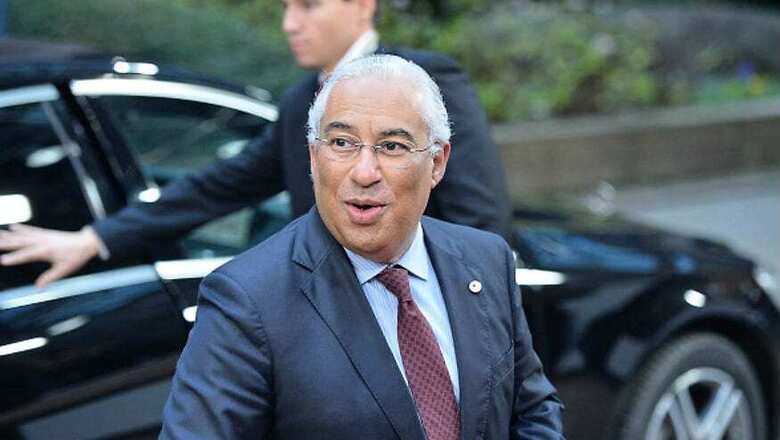
views
Lisbon: Portugal's Socialist Prime Minister Antonio Costa on Friday threatened to quit if parliament approves a law which would end a freeze on teachers' salaries, saying it would cause public spending to balloon.
"The final approval of this initiative will force the government to submit its resignation," Costa said in during a televised news conference after he held talks with the president.
His comments came after a parliamentary education committee on Thursday voted to end the wage freeze on teachers' salaries with the surprise backing of his minority government's far-left allies, the Communists and Left Bloc, as well as conservative parties. Only the ruling Socialists voted against the measure.
The committee vote still needs to be ratified by the full parliament. No date has been set for the vote but Portuguese media said it would take place around May 15.
The row over the teacher's wage freeze comes ahead of European Parliament elections in Portugal on May 26, and a general election slated for October 6.
Costa said ending the wage freeze for teachers would require the government to do the same for other public sector workers, which would lead to an annual increase in public spending of 800 million euros ($895 million) and undermine efforts to balance the budget.
He also warned that this extra spending would have to be either made up through "significantly higher taxes" or steep public spending cuts.
"We will not unfreeze wages today only to have to freeze them tomorrow," the prime minister said.
"It would be a lack of respect, now that were are at the end of the legislature and nearing elections, to spoil what has cost the Portuguese people so much" to achieve and which would "represent a break without commitments and a threat to the international credibility of our country. And this is not negotiable."
Since coming to power in 2015 with the support of the Communists and the Left Bloc, Costa's minority Socialist government has focused on restoring fiscal credibility even as it reversed some austerity measures imposed by his conservative.
The budget deficit, once 11 per cent of total economic output during Portugal's 2010-14 debt crisis, has been almost eliminated even as the government has opened the purse strings in some areas such as raising pensions and cutting taxes for those on lower wages.
Teachers have held strikes and noisy street protests against a measure included in the government's 2018 budget which allowed the state to disregard up to 10 years of the total time they have worked when calculating their salary.
Within the 36-nation OECD, only teachers in Luxembourg earn more than those in Portugal when measured in relation to workers with a similar educational level in their own country, the Paris-based body said in a report last year.
Unions representing nurses, police and other public sector workers immediately demanded salary increases as well.
Opinion polls suggest the Socialists are likely to win the general election but fall short of a majority.
The popularity of the party has slipped in recent months amid a scandal over perceived nepotism within the government.
The current Portuguese government includes a couple and a father and daughter, prompting the leader of the main opposition centre-right PSD party, Rui Rio, to quip that weekly cabinet meetings were like "Christmas dinners".
Conservative opposition parties accused Costa of "theatrics" and of provoking a political crisis ahead of the general election.
Political analyst Antonio Costa Pinto said it was "highly unlikely" that Costa would resign.
"Portugal is in the midst of an electoral cycle. In three weeks we will have European elections, in five months a general election. In this context, a resignation would not favour the Socialists," he told AFP.


















Comments
0 comment